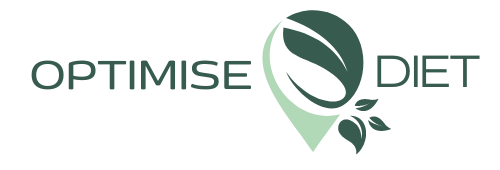In today’s fast-moving world, real health isn’t built on extremes. It lives in the subtle interplay of what you eat, how you move, and how you recover.
At Optimise Diet, readers expect evidence-backed advice delivered with practical clarity. This article brings together nutrition, training, and recovery in one cohesive plan: eat wisely, train intelligently, and listen to your body when rest means more than sleep.
Eat for Performance and Longevity

The foundation of any strong body is nutrient-rich food. Prioritize whole, minimally processed foods—lean proteins, whole grains, plenty of vegetables, healthy fats. These support muscle building, energy levels, and long-term health.
Research shows that diet quality matters just as much as calories when it comes to weight, metabolic health, and aging. When you plan your meals, aim for protein at each major eating time, complex carbs when you train hard, and healthy fats to maintain hormonal balance and satiation. Swap out ultra-processed snacks for simple, high-quality alternatives—nuts, fruit, plain yogurt, or a lean protein bar.
What you drink is important too. Water is involved in digestion, nutrient transport, temperature regulation, and even how efficiently muscles contract. For people who train regularly, filtering drinking water can be part of that same quality-first mindset.
Using a system like the Big Berkey gravity water filter helps reduce unwanted contaminants while keeping minerals intact, making hydration a more intentional extension of a whole-food approach. Just as with food, small upgrades in daily habits add up over time, especially when performance and long-term health are the goal.
What you eat and drink fuels every workout, every step—and every rest period. Think of nutrition as your performance edge and your recovery ally.
Train with Purpose, Not Punishment
Fitness isn’t about endless sweat for the sake of it—it’s about designing a routine that moves you toward your goals while preserving your body and mind. Resistance training should be a cornerstone: compound moves like squats, deadlifts, presses, and rows build muscle and metabolic resilience. Cardio adds cardiovascular conditioning; mobility and flexibility hold joints and tissues together.
Schedule smart: 3-5 workouts per week, combining strength & conditioning. For busy days, a 20-minute circuit with bodyweight or dumbbells is better than skipping entirely. Track progress: load, reps, recovery. The consistent incremental improvement matters more than grand leaps.
Recovery Counts – Mind, Body, Sleep
It’s easy to focus so much on food and workouts, you forget recovery—and that’s a mistake. Sleep, stress reduction, and mental well-being are the hidden gears of performance. Without them, gains stall, cravings rise, and mood dips.
Good sleep is non-negotiable: aim for 7-9 hours, maintain consistent schedules, limit screens before bed, and keep the room cool and dark. Equally important is addressing mental health: movement and diet help, but sometimes we need deeper support. If you are dealing with stress, trauma, or persistent mental fatigue, don’t hesitate to consult professionals specializing in behavior, resilience, or therapy. A program that includes In person therapy in Providence RI may be a key part of the recovery ecosystem beyond training and nutrition. Consider the mind as much as the muscle.
Whether it’s meditation, a walk in nature, journaling—or seeing a specialist offering In person therapy in Providence, RI—mental recovery shapes physical progress.
Integrating Food, Fitness & Recovery in Daily Life

So how do you bring all three—nutrition, training, recovery—into one daily rhythm? Here’s a simple scaffold to guide you:
Morning: Whole-food breakfast with protein + healthy carb (e.g., oats with Greek yogurt, berries, and chia).
Mid-day: Balanced meal with lean protein, vegetables, and a healthy grain or legume.
Afternoon workout: Resistance or circuit training session. Post-workout meal: lean protein with fast-absorbing carbs (e.g., rice, potato, banana).
Evening: Dinner with vegetables, healthy fat, moderate carbs if you still need fuel.
Night: Wind down. Light stretching or mobility. Screen off 30 minutes before bed. Sleep environment optimized.
Hydration, recovery techniques (stretching, foam rolling), and stress management (breathing exercises, reflection) fill the gaps between meals and workouts. These small choices compound into real change.
Why This Balanced Model Works
Sustainability: Extreme diets or training plans are hard to maintain. Balanced plans fit real lives.
Performance & Health: Rather than just “losing weight”, you build strength, resilience, and longevity.
Mind-Body Connection: Recovery isn’t optional—it’s integral. Without rest and mental support, effort doesn’t translate.
Precision: By focusing on quality nutrition, purposeful training, and smart recovery, you optimize rather than over-do.
Final Word
At the end of the week, your body should feel better. You should have more energy, better sleep, improved mood, and progress in strength or fitness. Not frenzy, not burnout—just forward momentum.
If you’ve been stuck chasing quick fixes, shift your lens. Choose clean fuel, move with purpose, and honor recovery. These foundations will support you whether your goal is better performance, sustainable fitness, or improved health for years to come.
One often overlooked aspect of this balance is hydration. Water plays a critical role in metabolism, energy transport, and temperature regulation. Staying hydrated throughout the day supports muscle recovery, mental clarity, and even mood stability. A simple rule of thumb is to drink half your body weight in ounces of water daily, adjusting for activity level and climate.
Adding electrolytes during intense sessions can help maintain endurance and prevent fatigue. Beyond hydration, developing a mindful relationship with food is transformative. Rather than labeling foods as ‘good’ or ‘bad,’ learn to understand what your body truly needs. Intuitive eating practices—listening to hunger and fullness cues—create a sustainable rhythm that prevents over-restriction or guilt.
Enjoying meals without distraction, chewing slowly, and appreciating flavor deepen your awareness and satisfaction. Movement, too, should evolve with life stages. In your 20s, you might chase performance; in your 40s, balance and longevity take priority. Recovery modalities like yoga, contrast showers, or massage therapy can bridge these transitions while keeping you active and injury-free.
Remember, your body thrives on variety—alternate between high intensity, mobility, and low-impact days. Lastly, mindset anchors all progress. Setting realistic goals, celebrating small wins, and maintaining curiosity toward your own habits cultivate consistency. Progress is not a straight line; some days you’ll push hard, others you’ll focus on rest or nourishment. The key is presence. When you eat, train, and recover with awareness, you build not only physical health but emotional resilience

